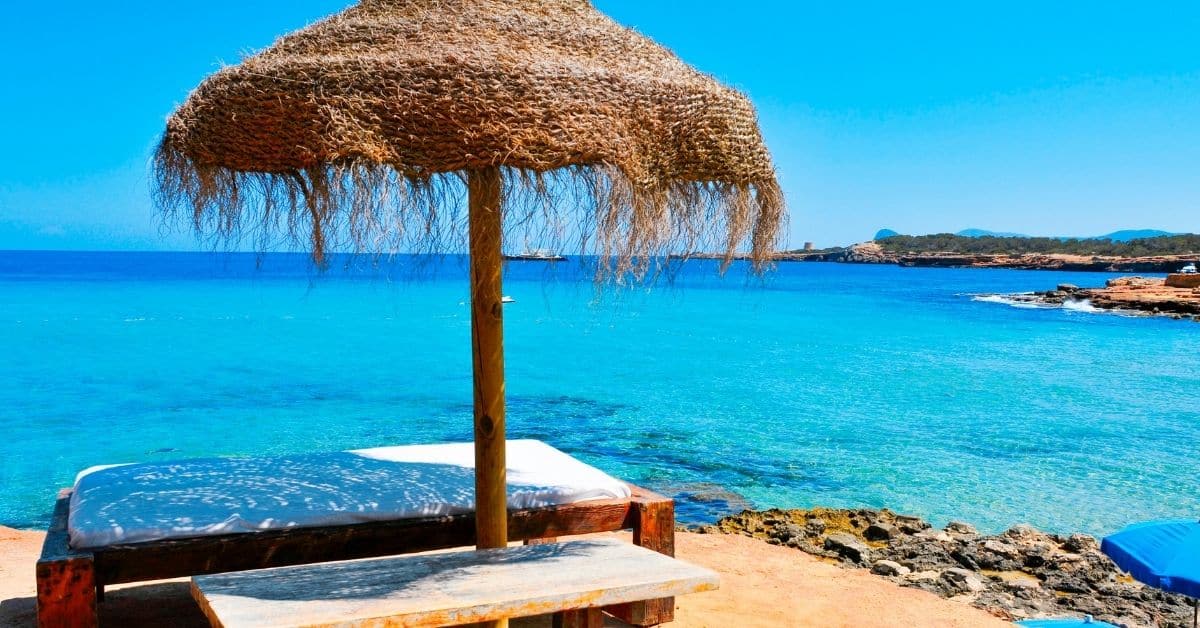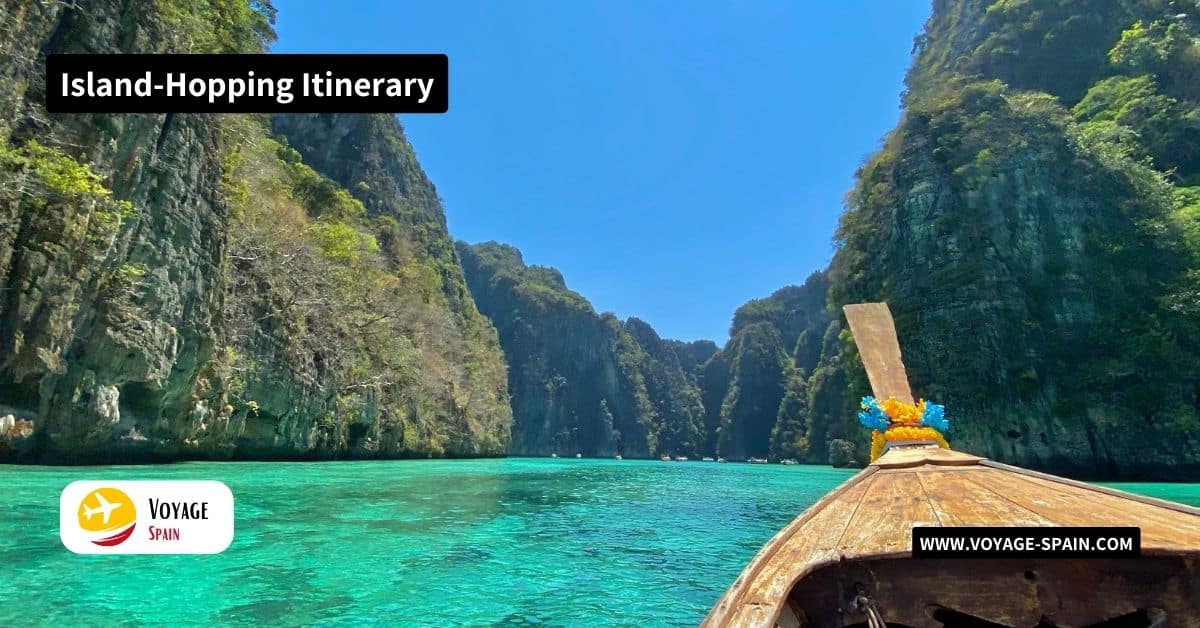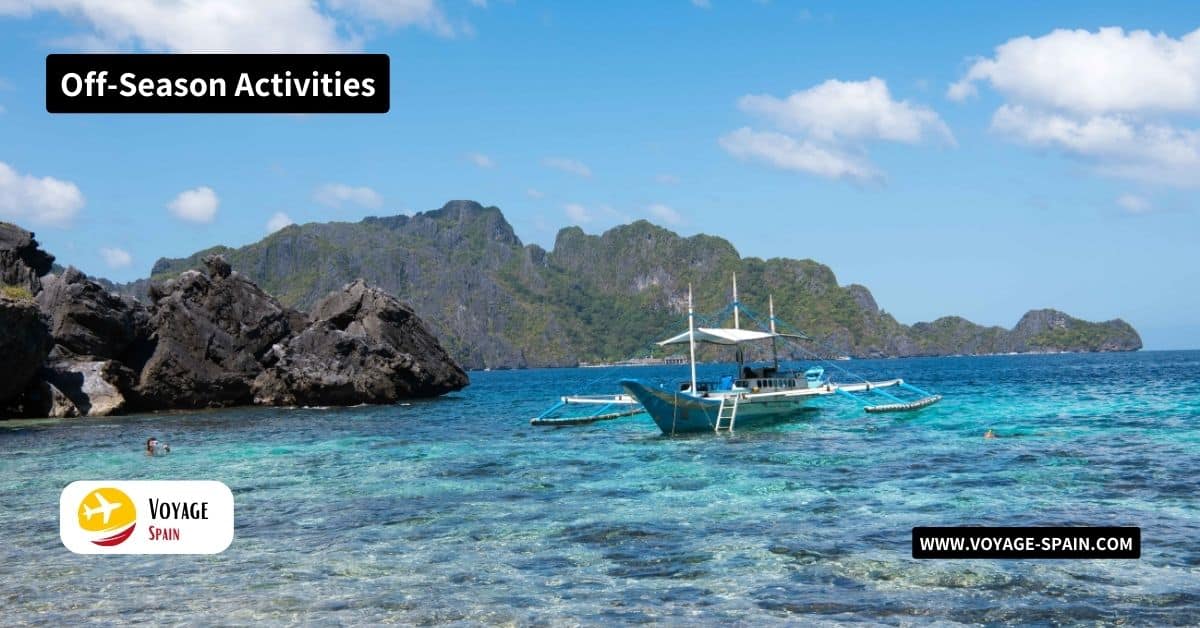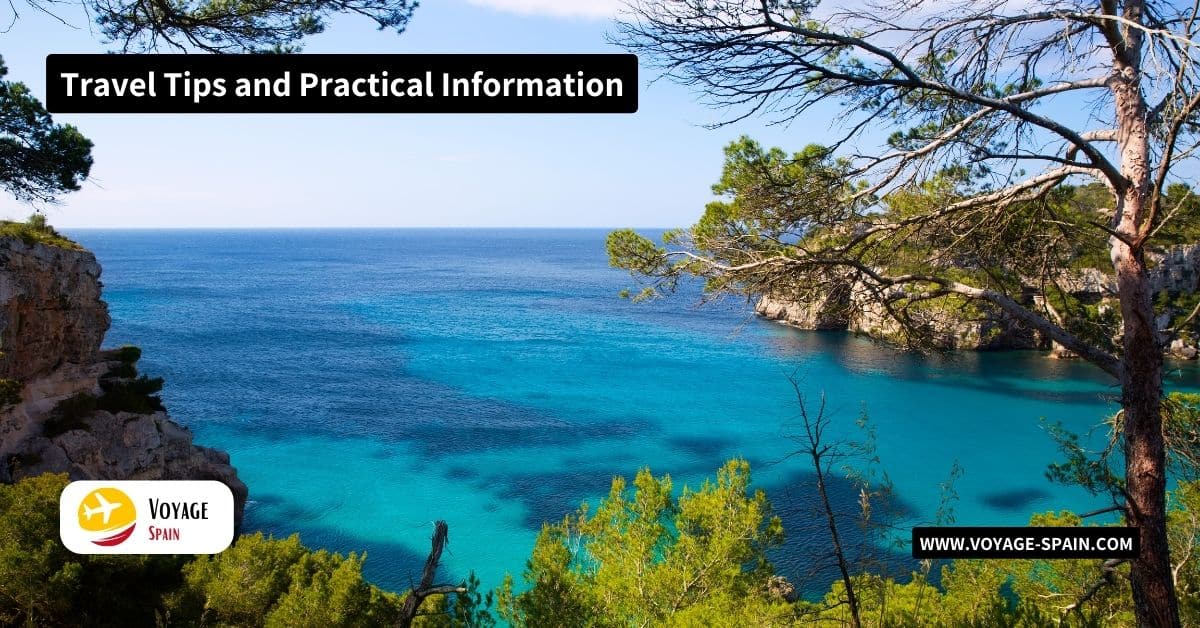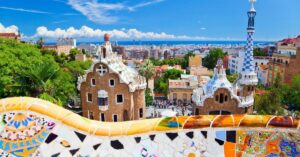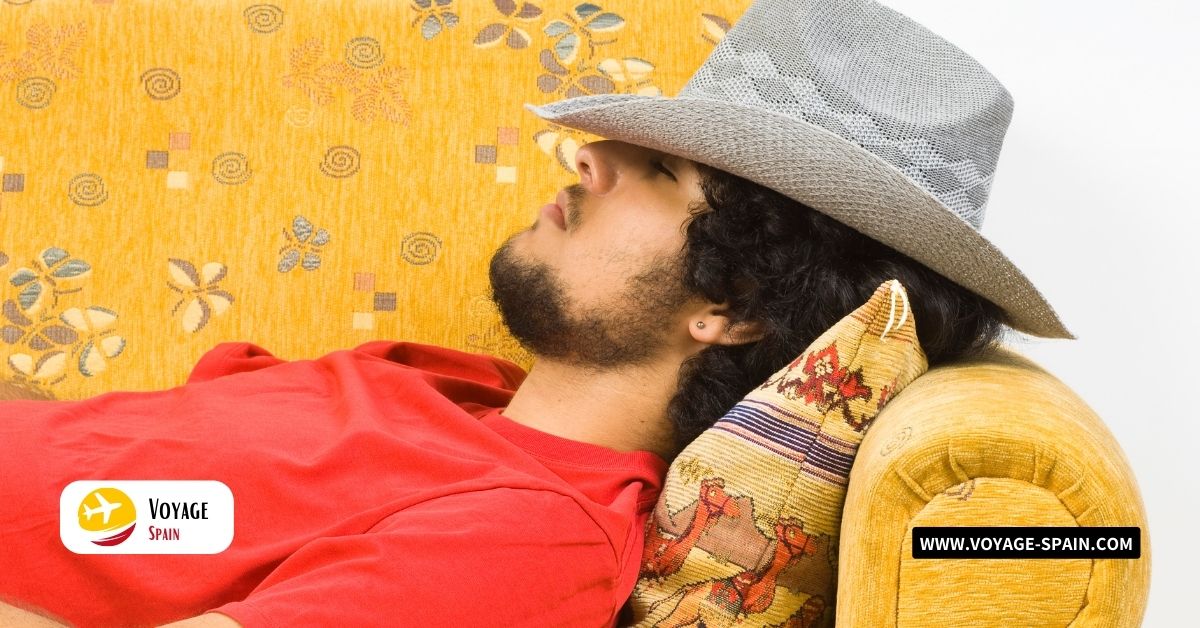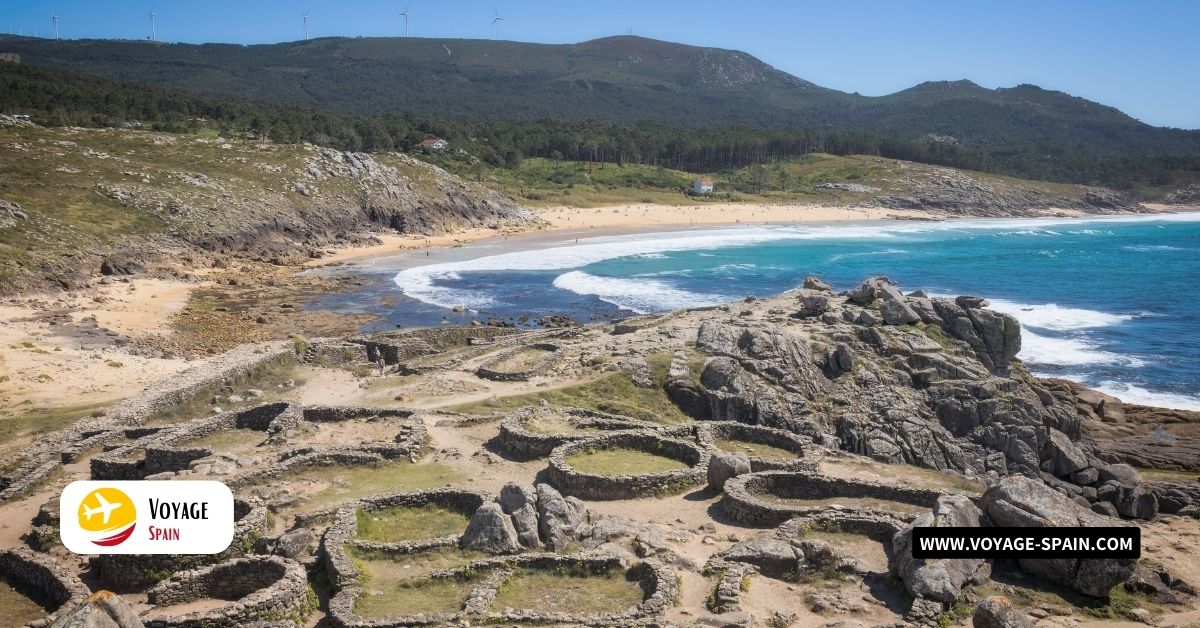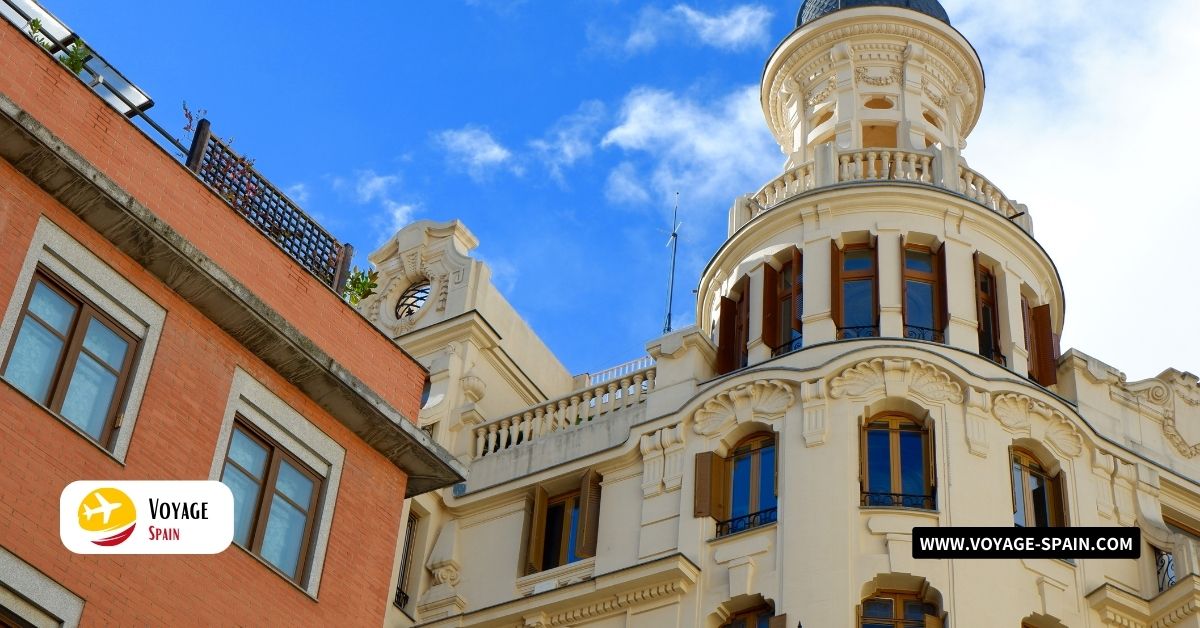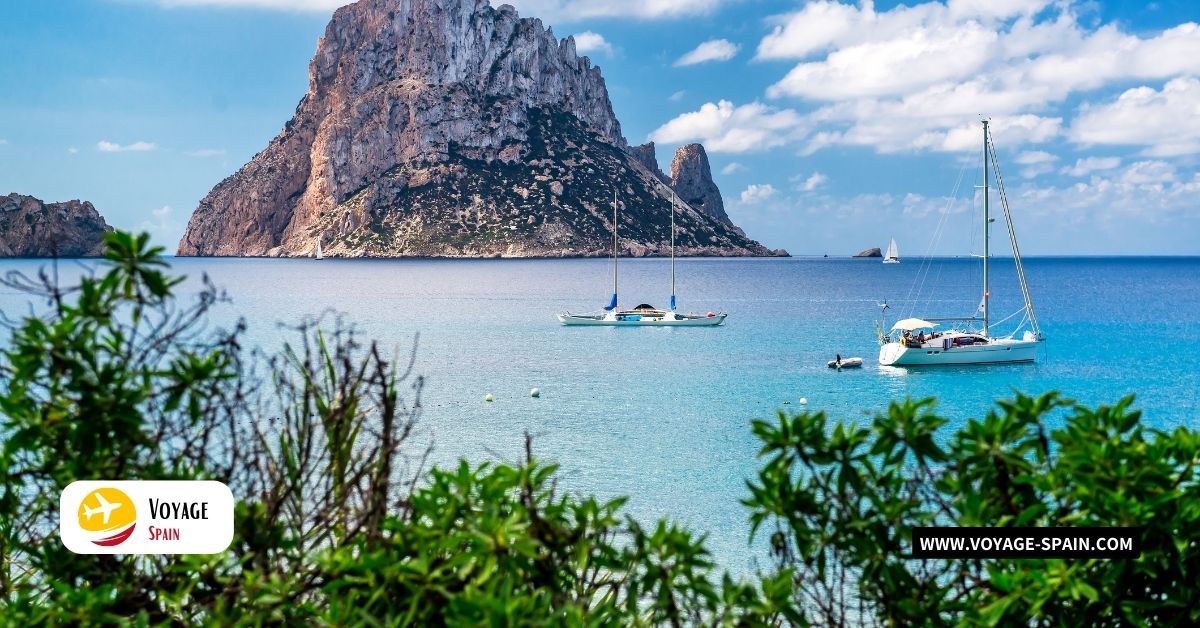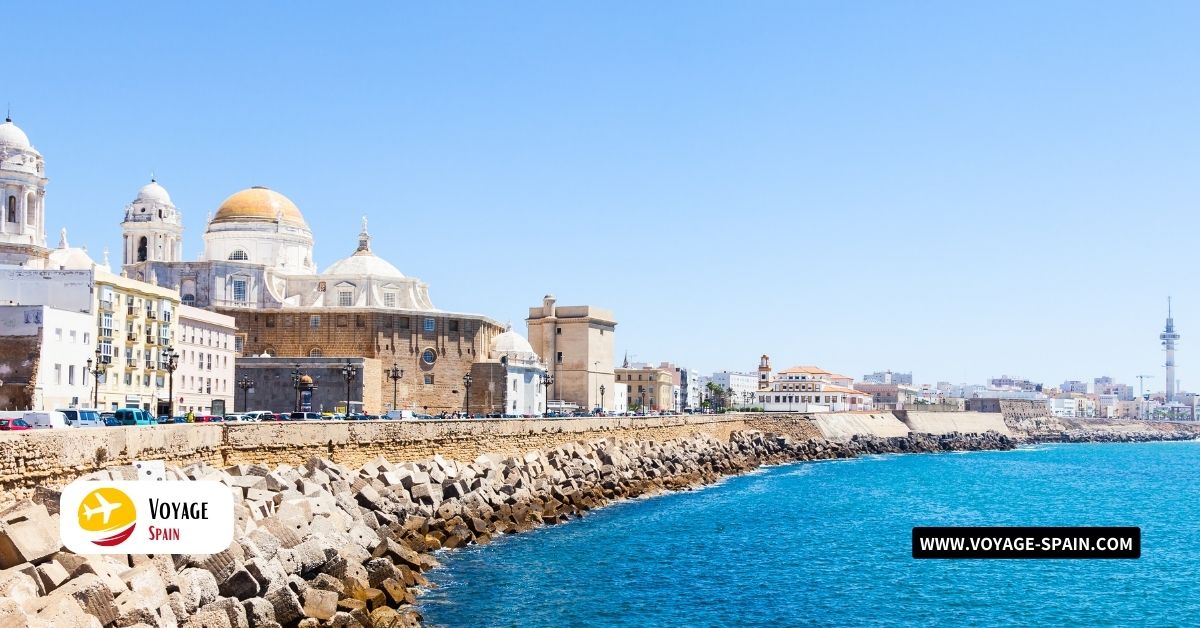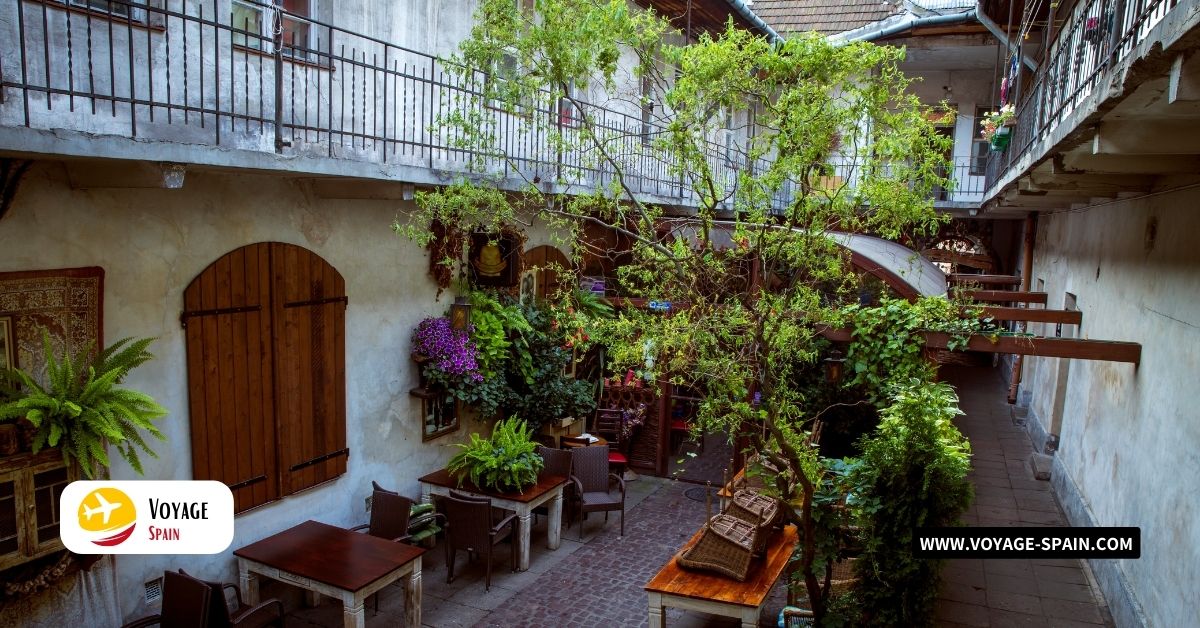The Balearic Islands
The Balearic Islands are a traveler’s dream come true. Comprising Mallorca, Ibiza, Menorca, and Formentera, this archipelago is a tapestry of beauty, culture, and adventure waiting to be explored.
Mallorca, the largest of the lot, boasts diverse landscapes that range from pristine beaches to the dramatic Tramuntana mountains. Ibiza, famous for its electrifying nightlife, is also home to serene coves and captivating sunsets. Menorca, with its untouched charm, offers a quieter escape, while Formentera lures visitors with its white-sand beaches and crystal-clear waters. Each island has its unique character and allure, making the Balearics a destination that caters to every type of traveler.
Benefits of Off-Season Travel
If you’re someone who’s all about savoring the hidden gems of travel destinations, then off-season escapades in the Balearic Islands might just be your cup of sangria. Lower prices on everything from flights to accommodations make it a budget-friendly paradise. With fewer folks around, you’ll have the Balearics’ pristine beaches and charming villages practically to yourself – no elbowing your way to the best spot on the shore.
But it’s not just about the dough you save; it’s also about the unforgettable experiences you gain. The off-season weather in these Mediterranean havens is surprisingly delightful, with mild temperatures and plenty of sunny days to go around. It’s all about seizing those intimate moments, chatting with locals, and indulging in authentic regional cuisine without the hustle and bustle of the crowds.
Island-Hopping Itinerary
First stop: Mallorca. Start your journey in the charming capital, Palma de Mallorca. Stroll through the historic Old Town and marvel at the grandeur of La Seu Cathedral. Then, head to Soller for a vintage train ride through picturesque landscapes. Don’t forget to explore the hidden gems of the Tramuntana mountains and their hiking trails.
Next up, hop over to Ibiza. While the island is world-renowned for its party scene, there’s more to it. Discover the serene side by visiting the laid-back beaches of Cala Tarida or hiking to the top of Sa Talaia for panoramic views. Explore the charming streets of Ibiza Town’s Dalt Vila, a UNESCO World Heritage Site, and savor some seafood paella by the sea.
Moving on to Menorca, where tranquility reigns supreme. Explore the ancient ruins of Torre d’en Galmés and soak in the pristine beauty of Cala Macarelleta. Don’t miss out on the vibrant local markets in Mahón and Ciutadella, where you can pick up handmade crafts and delicious cheeses.
Lastly, wrap up your island-hopping extravaganza in Formentera. Known for its paradise-like beaches, rent a bike and explore the coastline, stopping at Ses Illetes and Playa de Llevant for some serious R&R. For a touch of culture, visit the La Mola Lighthouse and stroll through the charming village of San Francisco Javier.
Weather and Climate
When it comes to planning your Balearic getaway during the off-season, you’re in for a pleasant weather surprise. In the fall and spring months, Mallorca, Ibiza, Menorca, and Formentera take on a whole new charm. The scorching summer heat makes way for balmy days and cooler nights, perfect for exploring without the risk of melting into a puddle of sunscreen.
Weather matters because it’s tailor-made for some fantastic activities. Think about hiking the Tramuntana mountains in Mallorca, biking along Menorca’s coastal trails, or savoring tapas at a beachfront restaurant in Ibiza. Water sports enthusiasts will also find this climate ideal for everything from kayaking to paddleboarding, with the sea temperatures remaining invitingly pleasant. And let’s not forget those serene moments by the beach, when you can enjoy the sound of the waves without the summer crowd soundtrack.
Accommodation Options
Accommodation choices in the Balearic Islands are as diverse as the islands themselves, catering to every traveler’s taste and budget. For budget-conscious adventurers, there are plenty of hostels and guesthouses sprinkled across Mallorca, Ibiza, Menorca, and Formentera. These offer cozy and wallet-friendly options, perfect for those who’d rather spend their money on island exploration than plush lodgings.
The islands often roll out the red carpet for travelers with enticing discounts and special deals. From reduced room rates to complimentary spa treatments or extended stay packages, there’s a good chance you’ll score a fantastic bargain when visiting outside the peak season.
Off-Season Activities
When it comes to the Balearic Islands, there’s more to the off-season than just quiet beaches and lower prices. It’s a time when these Mediterranean jewels unveil their authentic, local charm, offering a unique set of activities and cultural experiences you won’t find during the summer frenzy.
Unique Off-Season Activities
- Hiking Bliss in Mallorca: Strap on your hiking boots and explore the Tramuntana Mountains. The cooler temperatures make it the perfect time to conquer the island’s highest peak, Puig Major, or embark on the epic GR221 long-distance trail.
- Cycling Adventures in Menorca: With fewer cars on the road, off-season is prime time for cyclists. Rent a bike and explore the picturesque landscapes, quaint villages, and coastal trails that Menorca has to offer.
- Ibiza’s Cultural Scene: Ibiza may be famous for its parties, but off-season unveils its artistic side. Visit local art galleries, attend live music events, or join yoga and wellness retreats that thrive in the peaceful ambiance.
- Formentera’s Serene Beachcombing: Formentera’s beaches are known for their powdery sands and crystal-clear waters. Off-season, they become even more enchanting with serene seascapes and fewer sun worshippers.
Cultural and Local Festivals
- Sant Antoni Festival (Ibiza): Celebrated in January, this festival honors the patron saint of animals. Expect parades, traditional dances, and bonfires, all culminating in a lively street party.
- Fiesta de San Juan (Mallorca): Held in June, this lively celebration welcomes the summer solstice with bonfires, fireworks, and parties along the coast. Locals and visitors alike gather on the beaches for a night of revelry.
- Sant Joan Festival (Menorca): Menorca’s version of the midsummer festival is all about traditional horseback riding competitions, live music, and vibrant processions. The festivity in Ciutadella is particularly famous.
- Virgen de la Peña Festival (Formentera): In late August, this festival pays homage to the island’s patron saint with processions, boat races, and vibrant street fairs, offering a taste of authentic Formentera culture.
Local Cuisine and Dining
Get ready to embark on a culinary journey like no other as we dive into the delectable world of Balearic cuisine during the off-season. From cozy seaside taverns to bustling local markets, the islands offer an array of gastronomic delights that’ll make your taste buds sing with joy.
Balearic Culinary Scene:
- Market Magic: Off-season is the perfect time to explore the vibrant local markets. In Mallorca, don’t miss the Mercat de l’Olivar in Palma for fresh seafood, cheeses, and olives. In Ibiza, the Mercat Vell (Old Market) in Ibiza Town is a treasure trove of local produce and artisanal goods.
- Traditional Tapas: When in the Balearics, trying traditional tapas is a must. Sample “Sobrasada,” a spicy sausage spread from Mallorca, or “Bullit de Peix,” a fish stew from Ibiza. Menorca offers the delicious “Caldereta de Langosta,” a lobster stew that’s a true culinary delight.
- Rice Dishes in Formentera: Formentera is known for its rice dishes. Try “Arroz a Banda” (rice cooked in fish broth) or “Arroz de Matanzas” (rice with butifarra sausages). These savory delights are a testament to the island’s rich culinary heritage.
Traditional Dishes and Restaurants:
- Es Moli de Sal (Mallorca): Set in an old windmill, this restaurant serves up traditional Mallorcan fare with a modern twist. Don’t miss the “Tumbet,” a delicious vegetable dish, and “Coca de Trampó,” a savory pastry topped with tomatoes and peppers.
- Es Ventall (Ibiza): This family-run restaurant in San Antonio is known for its seafood dishes. Try the “Bullit de Peix” and the “Flaó,” a sweet cheesecake unique to Ibiza.
- Café Balear (Menorca): Located in Ciutadella, this iconic eatery is famous for its “Caldereta de Langosta” and “Lenguado a la Menorquina” (sole Menorcan-style). The seafood here is simply divine.
- Can Dani (Formentera): For a taste of Formentera’s flavors, head to Can Dani in Sant Francesc Xavier. Their rice dishes are a culinary masterpiece, and the “Peix Sec” (dried fish) is a local delicacy worth trying.
Travel Tips and Practical Information
Before you pack your bags and set sail for the Mediterranean, here are some practical travel tips and essential information to ensure your trip goes off without a hitch.
Essential Off-Season Travel Tips
- Weather Watch: While the off-season offers milder weather, it can still be unpredictable. Pack layers, including a light jacket, and don’t forget your sunscreen and a hat for sunny days.
- Book in Advance: Although it’s quieter, the off-season can still get busy, especially during local festivals. Reserve accommodations and activities in advance to secure the best deals and availability.
- Local Events: Check out local events and festivals happening during your visit. These can add a unique cultural dimension to your trip. From Sant Antoni in Ibiza to Sant Joan in Menorca, there’s always something exciting going on.
Practical Information
- Visa Requirements: Fortunately, for many travelers, a visa isn’t required for short stays in the Balearic Islands. However, it’s essential to check your specific visa requirements based on your nationality before traveling.
- Transportation: Navigating the islands is relatively straightforward. Ferries and boats connect the major islands, while buses and taxis are readily available for local transport. If you plan to explore extensively, consider renting a car for convenience.
- Travel Insurance: Never underestimate the importance of travel insurance. It’s your safety net for unexpected situations like trip cancellations or medical emergencies. Ensure your policy covers the activities you plan to engage in.
- Language: While Spanish is the official language, English is widely spoken, especially in tourist areas. Learning a few basic Spanish phrases can enhance your experience and interactions with locals.
- Currency: The official currency is the Euro (EUR). ATMs are widely available, but it’s a good idea to carry some cash for small purchases or places that may not accept cards.
- Emergency Numbers: Save the local emergency numbers for police, medical assistance, and fire services in your phone before you travel.
Conclusion
The off-season unveils a different kind of magic in these Mediterranean gems – one with milder weather, lower prices, and fewer crowds. It’s the perfect time to explore hidden beaches, savor traditional cuisine, and immerse yourself in local culture. From the mountains of Mallorca to the serene shores of Formentera, each island offers a unique charm waiting to be discovered.
FAQs
What is Balearic Islands known for?
The Balearic Islands are known for their stunning Mediterranean beaches, vibrant nightlife (especially in Ibiza), rich cultural heritage, and traditional cuisine.
Why should I visit the Balearic Islands?
You should visit the Balearic Islands for their beautiful landscapes, including beaches, mountains, and quaint villages. The islands offer a diverse range of activities, from water sports to hiking, and provide a glimpse into Spanish culture and history.
What is the prettiest island in Spain?
Beauty is subjective, but many consider Mallorca, the largest of the Balearic Islands, to be one of the prettiest islands in Spain due to its diverse landscapes, charming towns, and stunning coastline.
How many islands does the Balearic Islands have?
The Balearic Islands consist of four main islands: Mallorca, Ibiza, Menorca, and Formentera, along with several smaller islets and rocky outcrops.
Does Spain own the Balearic Islands?
Yes, the Balearic Islands are an autonomous community of Spain, located in the western Mediterranean Sea.
What is the second largest island in the Balearic Islands?
The second-largest island in the Balearic Islands is Menorca, known for its natural beauty, historical sites, and quieter atmosphere compared to its larger counterparts.

